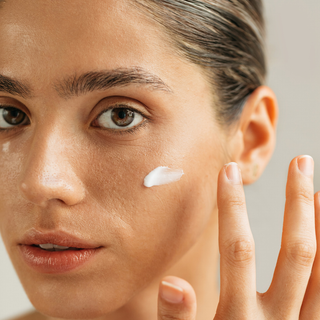Can Serums Replace Your Moisturizer? Here’s What You Need to Know
December 27, 2024

Skincare routines are evolving, and serums have become a must-have for many. Packed with high concentrations of active ingredients, serums are formulated to target specific concerns like fine lines, dark spots, and dehydration. But can they replace your moisturizer? Let’s break it down.
What Is a Serum?
Serums are lightweight, fast-absorbing liquids designed to deliver potent active ingredients deep into the skin. They’re typically water-based or oil-based and are used after cleansing and before moisturizing. Common types of serums include:
- Hydrating Serums: Contain ingredients like hyaluronic acid to boost moisture levels.
- Anti-Aging Serums: Include retinol or peptides to reduce wrinkles and improve elasticity.
- Brightening Serums: Feature ingredients like vitamin C to even out skin tone and reduce dark spots.
What Is a Moisturizer?
Moisturizers are thicker formulations designed to hydrate the skin and seal in moisture. They come in various forms, such as creams, lotions, and gels, and are essential for maintaining the skin’s barrier. Moisturizers typically contain:
- Occlusives: Create a barrier to lock in hydration (e.g., shea butter, petrolatum).
- Humectants: Draw water into the skin (e.g., glycerin, hyaluronic acid).
- Emollients: Soften and smooth the skin (e.g., squalane, ceramides).
Key Differences Between Serums and Moisturizers
While both products contribute to skin health, they serve different purposes:
- Serums: Focused on delivering active ingredients to target specific skin concerns.
- Moisturizers: Primarily designed to hydrate and protect the skin’s barrier.
Can Serums Replace Moisturizers?
In most cases, serums cannot fully replace moisturizers. Here’s why:
- Hydration Levels: Serums, especially hydrating ones, can provide moisture but lack the occlusive properties needed to prevent water loss. Without a moisturizer, the hydration serums provide may evaporate quickly.
- Barrier Protection: Moisturizers fortify the skin barrier, shielding it from environmental aggressors and locking in hydration. Serums do not offer the same level of protection.
- Skin Type Matters: Those with oily or acne-prone skin might find a lightweight serum sufficient in humid climates. However, dry or sensitive skin typically requires the added nourishment of a moisturizer.
When Can You Skip Moisturizer?
In certain situations, you might be able to forgo moisturizer:
- Hot, Humid Weather: If your skin feels adequately hydrated after applying a serum, you can skip the moisturizer in warm, sticky climates.
- Oily Skin Types: For those with very oily skin, a hydrating serum might be enough, especially during the day.
However, even in these cases, using a moisturizer at night is recommended to support skin repair and hydration.
How to Use Serums and Moisturizers Together
To get the most out of your skincare routine, use serums and moisturizers in tandem:
- Cleanse: Start with a clean slate to remove impurities.
- Apply Serum: Use a serum that targets your specific skin concern. Pat it gently onto your skin.
- Seal with Moisturizer: Lock in the serum’s benefits and provide additional hydration and protection.
Trio Serum Bundle
Elevate your skincare routine with our all-in-one bundle. Our three powerful yet gentle serums effectively hydrate, brighten, and lift your skin.
This is a bundle including three Serums: the Rain, Cloud, and Sunshine Serum.
- Rain Serum: Hydrates and preps your skin with hyaluronic acid and ceramides.
- Cloud Serum: Targets fine lines and promotes firmness with retinol and collagen.
- Sunshine Serum: With niacinamide and squalane, it evens skin tone, reduces dark spots, and boosts your natural glow.
Follow with your favorite moisturizer to maximize hydration, anti-aging, and brightening benefits.
Final Thoughts
While serums are an essential part of a targeted skincare routine, they’re not a complete substitute for moisturizers. Together, these products create a balanced approach to hydration, protection, and rejuvenation. By understanding their roles and how to use them effectively, you can build a skincare routine that meets your unique needs.
Ready to upgrade your routine? Explore our serums and find your perfect skincare match today!

